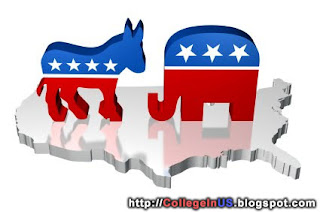 Cheap Budgets With Different Effects On Student Loans 2013 - Among a number of other dissimilarities, federal budgets proposed by Democrats and Republicans in Congress offer varying effects for students involving federal financial aid and education funding.
Cheap Budgets With Different Effects On Student Loans 2013 - Among a number of other dissimilarities, federal budgets proposed by Democrats and Republicans in Congress offer varying effects for students involving federal financial aid and education funding.Democrats in the House of Representatives’ House Budget Committee announced an alternative budget plan Monday in response to the budget released March 12 by House Budget Committee Republicans, according to a Monday press release from the committee.
The alternative budget proposed by House Democrats continues full funding for students receiving Federal Pell Grants and prevents subsidized student loan interest rates, currently set at 3.4 percent, from doubling in July 2014.
“This focus on education is in sharp contrast with the Republican budget,” the Democratic budget summary stated. “Their budget makes it harder for out-of-work Americans to get the education and skills needed to find jobs in a competitive global economy by cutting job training services and by cutting student aid by $168 billion over 10 years.”
The Republican budget plan aims to reserve financial aid for those most in need (see HERE), cap Pell Grants awards at $5,645 annually, streamline federal aid programs and remove barriers in higher education, particularly those relative to non-traditional teaching methods like online college courses.
Tim Buckley, communications director of the Massachusetts Republican Party, said in an email that the Republican budget would protect students in the future and ensure the Pell Grant program is sustainable.
“This budget plan looks to maintain current Pell Grant levels and reform the system so today’s middle school students can access the same resources currently available — which left alone, would go broke,” he said.
He said measures aiming to lower costs of college in the past have generally been ineffective.(see HERE)
“It is important to remember that throwing money at efforts to reduce the cost of higher education has not worked, as anyone paying tuition today knows all too well,” Buckley said. “More spending is not translating into results.”
BU Republicans Vice President Mara Mellstrom said the budget proposals do not appear as if they will affect a majority of college students, and that most of the provisions for higher education deal with streamlining program funding.
“Where [U.S. President Barack] Obama wants to do more Pell Grants and more price control, it looks like [House Budget Committee Chairman] Paul Ryan and the Republicans just want to trim the fat,” Mellstrom, a College of Arts and Sciences junior, said.(see HERE)
Mellstrom said the budget proposed by Republicans is fair and appropriate.
“The Republicans are well aware that everyone deserves a college education and that everyone should have equal opportunity to get it,” she said.
While it is troublesome that Congress takes so long to come to a consensus on the budget, these dilemmas are more complex than most Americans think, Mellstrom said.
“It’s not black and white,” she said.
Diaz, a CAS senior, said the current stagnation in Congress is causing further distress for college students trying to fund their education.
“We are at a point where students must address the skyrocketing costs of college tuition, but we’re also at a point where, in Congress, everything is completely stalled right now,” she said. “The House Democrats, they’re just trying to make sure with this budget that college students don’t get caught in the fray of things like inflation or economic conditions in this country.”
Kayla McDonald, a CAS senior, said Congress should be quicker to make a decision on the national budget.
“It makes sense that it’s taking them [Congress] a long time, but they should definitely be able to come to an agreement faster than this,” she said.
McDonald said she receives federal aid, but would still like to see some improvement to federal aid programs.
“I think they overestimate the family’s contribution a lot of the time,” she said.
School of Law graduate student Kelly Soltis said while she does not receive federal aid, she would like to see a limit on how much colleges can charge.
“It would be helpful for students like me who don’t receive financial aid to have some sort of cap on either the percentage increase on tuition or tuition in general at universities, especially private universities,” she said.
CAS freshman Ellen Nevers said it is important to maintain a low interest rate on federal loans.
“It’s definitely helpful that some of the federal loans come with a much lower interest rate,” she said. “They’ve offered me a lot of loans that would be easier to pay back than trying to take a loan out myself.”
Source : http://dailyfreepress.com/
Description: Cheap Budgets With Different Effects On Student Loans 2013
Rating: 5
Reviewer: Unknown
ItemReviewed: Cheap Budgets With Different Effects On Student Loans 2013
Rating: 5
Reviewer: Unknown
ItemReviewed: Cheap Budgets With Different Effects On Student Loans 2013

0 komentar:
Post a Comment